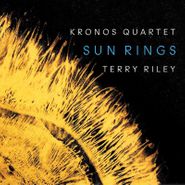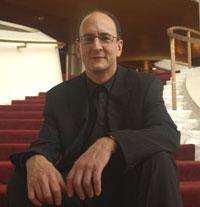Ben Rosen, former Board Member of the Met, has a fascinating post at his blog about the Met’s turnaround under the leadership of Peter Gelb. (Thanks to Alex Ross for pointing it out.) The whole essay is worth reading if you have any interest in the future of the classical music business or in the fortunes of the Met, but I want to highlight one passage in particular, concerning the marketing of Philip Glass’s opera “Satyagraha.” Apparently, prior to Gelb’s arrival the Met had no marketing team–marketing wasn’t seen as necessary with the number of sold-out performances they were playing. But in 2002, after years of steadily running at around 92% box office capacity, box office collapsed to 82% and began a steady decline to 77% in 2006. Rosen says that in the 90s the Met was selling out most nights, but in 2006 they sold out only 10% of performances.
As the 2007-08 season began, here’s what happened: Seven performances of Satyagraha was scheduled for the spring of 2008. Many subscribers who found Satyagraha included in their series decided to opt out of the Glass opera — they traded in their seats for other operas. And single-ticker buyers turned out to be equally cool to the prospect of watching a Sanskrit work. Normally, as a season progresses, single-ticket sales start out filling up the house. But a funny thing happened in this case. The forecasted box office of Satyagraha started declining, and at an alarming rate. The more time that passed, the worse the box office ahead looked. If this continued, there was a chance the opera would play to near-empty houses.
So a marketing task force was put together. For a modest budget, aided by contributions from a board member, the team was able to create dozens of different marketing initiatives designed to attract specialized audiences. New-age magazines yoga groups, anti-apartheid organizations, India groups, South African organizations, et al.
It worked. By the end of its run, Satyagraha had sold out its run. (By the way, it was a terrific production. I like to quip that Satyagraha is now my favorite Sanskrit opera.) Next year, the same team will have an opportunity to apply its narrow-focus marketing techniques to selling the John Adams opera, Doctor Atomic — a contemporary work about the creation of the atomic bomb.
Classical music organizations often fear that contemporary music scares away subscribers, and in this case it was true. The solution, usually, is either to program less new music or to essentially subsidise the new music performances with revenue (ticket sales and fundraising) from other more “audience-friendly” performances. But in this case all that was needed was an intelligent marketing campaign. Too few organizations do any real marketing efforts, and many of the ones that do focus on existing audiences. Note that the advertising strategy for Satyagraha wasn’t to push the opera harder to the existing audience base or to try to find an existing base of new-music fans–they targeted their advertising to people interested in the themes of the opera. Note also that the advertising matched a specific program with specific groups of people rather than trying to sell the organization or classical music in general to specific groups or to a general audience, or worrying about selling the specific program to a general audience. We don’t think of new age magazines or anti-apartheid groups as full of classical music lovers or potential classical music converts, and so we don’t advertise to them, but it turns out that when the program has direct relevance to their affinity advertising pays off handsomely. We shouldn’t be surprised–this is how modern marketing works–and yet I see very little of it in classical music.
My secondary point is that the success of the Satyagraha marketing campaign illustrates an important feature of industry trends. The subscription model of ticket sales is failing, and the main reason is simply that people have many options for entertainment and prefer to diversify. Attempts to salvage the subscription model may show short-term success (in fact, Met subscriptions are back up do to the fact that subscribers get first dibs on shows that are likely to sell out) but are doomed to failure over the long term. The solution, however, isn’t to appeal to the mythical “general audience,” it’s to use modern marketing strategies to pitch specific events to specific populations. I look forward to seeing how the marketing stratgy for “Doctor Atomic” plays out.


 If there were ever any doubt that
If there were ever any doubt that